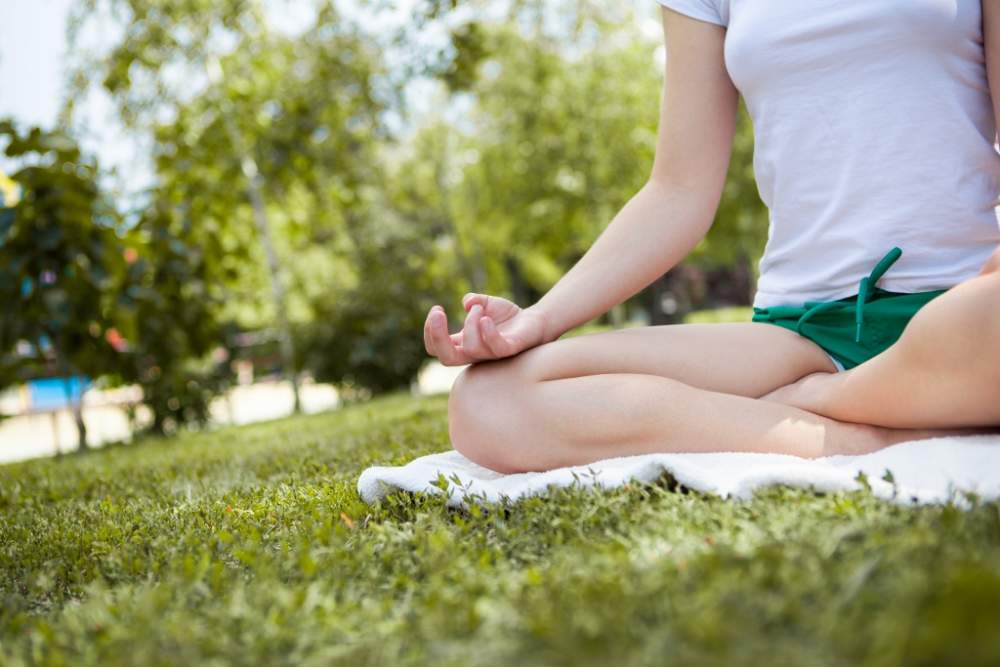Anxiety now surpasses depression as the number one mental health disorder affecting college students. The reasons for this are varied and complex. However, I would bet that massive student loan debt plays a significant role.
I have always been a Type A person who worries too much. During my senior year of college, a series of stressful events triggered the onset of severe anxiety. At the time, my anxiety was constant and felt out of control. Four years later, I still experience anxiety often, but I now know that I have the ability to cope with my anxiety. My anxiety has become manageable.
Here are seven tips for dealing with anxiety.
[callout title=” text=’The more we worry about being anxious, the more anxious we become. ‘ button_text=” button_link=”]
Accept it – don’t fight it.
Anxiety is not pleasant. Anxiety can make you feel like there’s a tight band pressing on your forehead. It can make you feel like you’re going to throw up. It can make you feel like you can’t breathe. It can cause you to worry constantly (and often about things that are irrational and will never happen).
These feelings are not enjoyable, so it’s not surprising that we try to fight them. But trying to fight anxiety often makes anxiety worse. The more we worry about being anxious, the more anxious we become. If you accept your anxiety, understand that it will not hurt you (instead of being afraid of it), and stop trying to fight it, you will gradually begin to relax.
Distract yourself and keep busy.
Fixating on anxiety will only make it worse. Try to keep your mind focused on other things. Think about something that interests you and something that you can get really absorbed in. Do something – anything that will keep you focusing on something other than your anxious thoughts.
Take a break.
While anxiety can get worse when we are bored and have nothing else to do or think about, being TOO busy can also cause anxiety. If feeling overwhelmed is triggering your anxiety, take a break. Learn to say “no” once in a while. Allow yourself to take the time to do something relaxing. Take a bubble bath, listen to music, do yoga, get a massage, go for a walk – whatever it is that makes you feel relaxed.
Talk it out.
Talk about your feelings with a friend or family member – ideally someone who’s a good listener or someone who has experienced anxiety themselves. If you don’t feel comfortable talking to a relative or friend about your anxiety, consider talking to a mental health professional. If you have a high deductible health plan, don’t have insurance, or can’t afford copays, search online for free or low-cost counseling services. Many universities, nonprofit groups, and religious organizations offer free or “sliding fee” (dependent on income) services.
Exercise.
Exercise gives you endorphins, which reduce anxiety and improve mood. Exercise itself can also be fun, and it can keep your mind focused on something other than your anxious thoughts. If you don’t have the time or energy to work out, do something active that’s easy and quick. Even a leisurely walk or short bike ride can reduce stress and anxiety.
Try relaxation techniques.
Meditate, practice mindfulness, do some yoga, or simply take slow, deep breaths – whatever works best for you. All of these options involve focusing on your breathing. Taking long, deep breaths counteracts the effects of stress on the body – slow breathing lowers heart rate and blood pressure.
Avoid caffeine.
Caffeine consumption often worsens anxiety by causing jitters, panic attacks, racing thoughts, and/or insomnia. Avoid pop, coffee, energy drinks, and anything else that contains caffeine. If you’re lacking energy, make sure to eat a healthy diet full of fruit and veggies, and exercise regularly. If you don’t have energy because you’re depressed or you’re having trouble sleeping, consult a physician or psychiatrist.
Disclaimer: I am not a medical or mental health professional. This information is not meant to replace advice from a trained psychiatrist, psychologist, or doctor. If you are experiencing depression, panic attacks, or suicidal thoughts, seek professional help immediately.
Other stuff you might like:
10 Frugal Ways to Get Fit
9 Reasons Why I Love Yoga
7 Things I Wish I’d Known Before I Started College
5 Ways to Save Money on Healthcare Costs





Good tips! I also read that book and I found it very helpful.
Dr Claire Weekes has a great book on anxiety titled “Hope and Help’ for your nerves. I have used a few of her coping techniques for years and they really have helped me. One tip is to concentrate on your body and notice how you are tightening your muscles and relax them by pretending to float on a cloud while saying to yourself–float, don’t fight. In other words float right into the fear instead of resisting it.
Another of her tips is to blow into a paper bag–it really helps…another thing that helps is positive self talk such as–no one ever dies at the dentist…
I have a few quotes that I liked and I’ll mention my thoughts on those quotes.
“Take a bubble bath, listen to music, do yoga, get a massage, go for a walk – whatever it is that makes you feel relaxed.”
I’ve often done things to relax and try to lower my anxiety. For example, I read fun books, I watch some comedy tv shows, I listen to some music while driving, and I exercise. I believe all of these while keeping busy help lower my anxiety.
“Talk about your feelings with a friend or family member …”
I’ve got an awesome girlfriend who is going to graduate school for therapy and low and behold, I sometimes use her as a sound board for my concerns and thoughts about life. I’m glad to have her in my life.
You are lucky to have her in your life :)